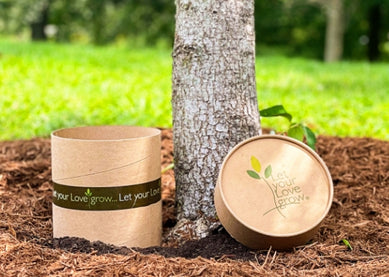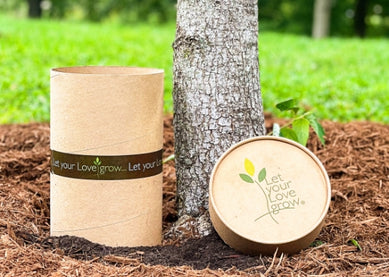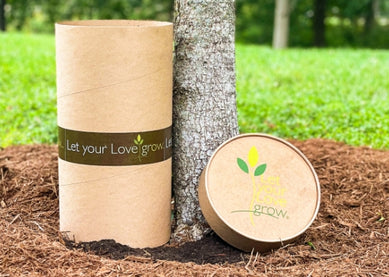New Regulations on Body Composting
For all the advanced technology we enjoy today, the way we dispose of human bodies in the U.S. has changed very little over the past 150 years. However, as more people become environmentally conscious, that may change soon.
Washington recently became the first state to recognize composting as a legal alternative to burial or cremation. This is a great development for proponents of eco-friendly burial, but body decomposition isn’t as simple as you may think. Let’s take a look.
Understanding Body Composting
Body composting has been on our minds at Let Your Love Grow (Verde Products, Inc.) since 2011. As we researched alternative methods to conventional burial and cremation, we began studying decomposition utilizing pig bodies to understand its impact on the environment.
We quickly learned that decomposition of the dead is a difficult proposition, because each body is very complex. A large portion of the body, as much as 75%, will decompose rather quickly because it is made of protein, fat, and water. One problem with these components is that, because they are so nutritious, their release into the soil needs to be regulated.
Decomposition is Not Rapid
Although 75% of the body decomposes fairly quickly, the remaining 25% proves to be more complex. Durable hard tissues like dry skin, bone, teeth, and hair are all left behind once the soft tissue decomposes. These materials can persist in soils over archaeological timescales. For body composting to be considered a truly green solution, the environmental harm of these materials must first be offset.
Decomposition May Disturb Nature
During the decomposition process, a body can release toxic levels of decomposition fluids into the soil that kill many forms of life including plants, insects, and microorganisms. In other words, these untreated decomposition fluids decrease biodiversity while the initial 75% of the body is decomposing.
Imagine placing a large mound of fertilizer on your lawn. It sounds good on paper, but ecologically speaking, it’s considered a disturbance to the lawn. The fertilizer mound will kill the grass and significantly alter the number and types of other organisms that live there. Other disturbances found in nature include fallen trees, floods, lightning strikes and lava flows.
The Need for Eco-Friendly Composting
Human composting, in its simplest form, is not a sustainable solution. When you consider the time it takes for the remaining 25% of a body to decompose, and compound it by hundreds of bodies in one space, the environmental stability weakens significantly.
To combat this, we’ve developed a product made of organic materials that harnesses the natural process of decomposition and calibrates it to optimal levels for peak effectiveness and efficiency. This product has the capacity to decompose the flood of decomposition fluids, recycle all of the durable hard tissues, and regulate the toxic effects of bodies. In doing so it simultaneously facilitates the reintroduction of a body to nature. The decomposition byproducts will be used as food by nearby plants and they will also foster the lives of countless microorganisms, earthworms, insects, and mammals.
Although we’re excited to see states like Washington begin to recognize body composting, we must be conscious of Mother Earth and promote biodiversity at all levels of an ecosystem. We owe it to our environment to thoroughly understand how our disposal methods, from burial to cremation to composting, impact the rest of life around us. We see Let Your Love Grow as the first step toward an eco-friendly future that allows our loved ones to replenish the environment, even in death.






